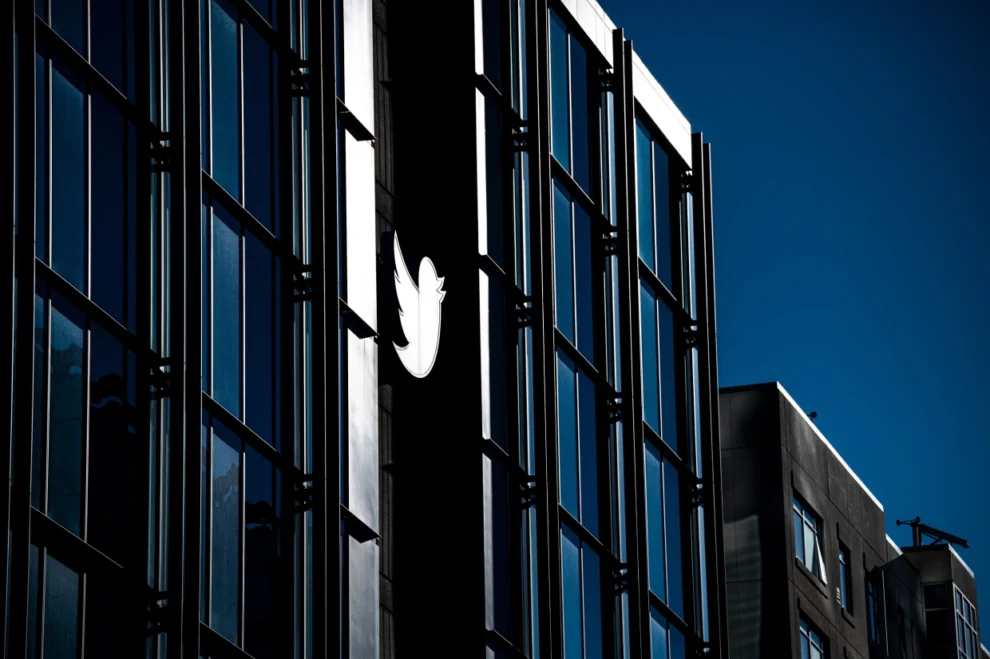The advocacy group GLAAD condemned the move.
Twitter sparked backlash this week after some users noticed it had quietly removed language in its hateful conduct policy that explicitly protected transgender people from online harassment.
The social media platform had prohibited the targeted misgendering or deadnaming of transgender people since 2018. Some online noticed this month that the sentence had been plucked from Twitter’s section on slurs and tropes, while all other descriptions of policy violations remained intact.
Archives captured by the Wayback Machine showed the previous version still existed April 7, the day Twitter announced it had updated its abuse and harassment policy to redefine “targeted harassment.” But by the next day, the line had disappeared.
The advocacy group GLAAD condemned the move in a statement Tuesday, calling it the latest in a series of changes that have made the platform less safe for people and advertisers.
“Twitter’s hateful conduct policy protected trans people from targeted misgendering and deadnaming for close to five years, and now they mysteriously removed it without a word,” GLAAD President and CEO Sarah Kate Ellis said in a statement. “This is unacceptable in any climate, and doubly unacceptable when you look at the barrage of disinformation and hate about trans people from right wing media personalities, politicians, and the extremists they bolster.”
It’s unclear whether the change in language constitutes any change in the policy itself. As of Tuesday, Twitter’s report function still allows users to report a tweet for “misgendering or deadnaming” a person or a group of people.
Twitter responded to a request for comment with the Pile of Poo emoji, an automated message it now sends as a reply to all media requests.
Alejandra Caraballo, a civil rights attorney and clinical instructor at the Harvard Law School Cyberlaw Clinic, said that Twitter has always been inconsistent in enforcing its content moderation rules Elon Musk’s takeover in October opened the floodgates to an even more unmanageable surge of hate speech.
Regardless, she said, removing explicit language against targeting transgender users strips away the deterrent effect of having the policy in writing, even if the rules were to remain in place. And the impacts of hate speech on social media often bleed into real life.
“It’s perpetuating this incentive to engage in the targeting of trans people, especially since it’s being favored by the algorithm because it’s creating outrage,” Caraballo said. “It’s relating to emotions of fear, anger and disgust, which are typically associated with better promotion by algorithms on social media sites because it increases engagement.”
Online anti-transgender outrage against Dylan Mulvaney’s recent partnership with Bud Light, which played out largely on Twitter, incited bomb threats against Budweiser factories across the country.
Transgender Twitter users have long expressed concern over Musk’s history of transphobic rhetoric and behavior, from tweeting in 2020 that “pronouns suck” to sharing an unfounded and homophobic conspiracy theory last year about Paul Pelosi, the husband of former House Speaker Nancy Pelosi, D-Calif., after he was attacked in the couple’s home.
Twitter also updated its list of consequences for users who break the rules. It now claims it makes offending tweets less visible using expanded limits on discoverability, including removing them from search results and home timelines.
Twitter announced Monday it will begin labeling such tweets with a content warning: “Visibility limited: this Tweet may violate Twitter’s rules against Hateful Conduct.”
Caraballo said that in her experience as a transgender woman on the platform, the effectiveness of Twitter’s content moderation policies was close to zero even before the policy language changed.
She recalls having reported multiple instances of being intentionally misgendered or deadnamed and hearing that no violation had been found. The most recent change, she said, may embolden transphobic users to ramp up their activities even further.
“People don’t feel safe,” she said. “A lot of people are making their exit plans to other platforms, and while there’s no perfect replacement for Twitter and what it does, for a lot of people, it’s just not worth it to be subjected to that kind of abuse.”
Source: NBCNews











